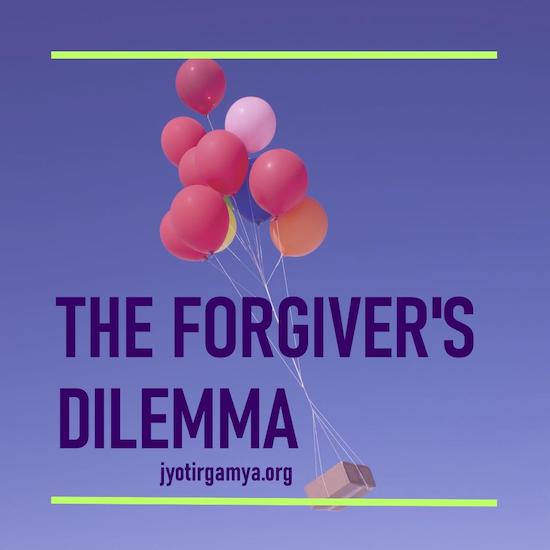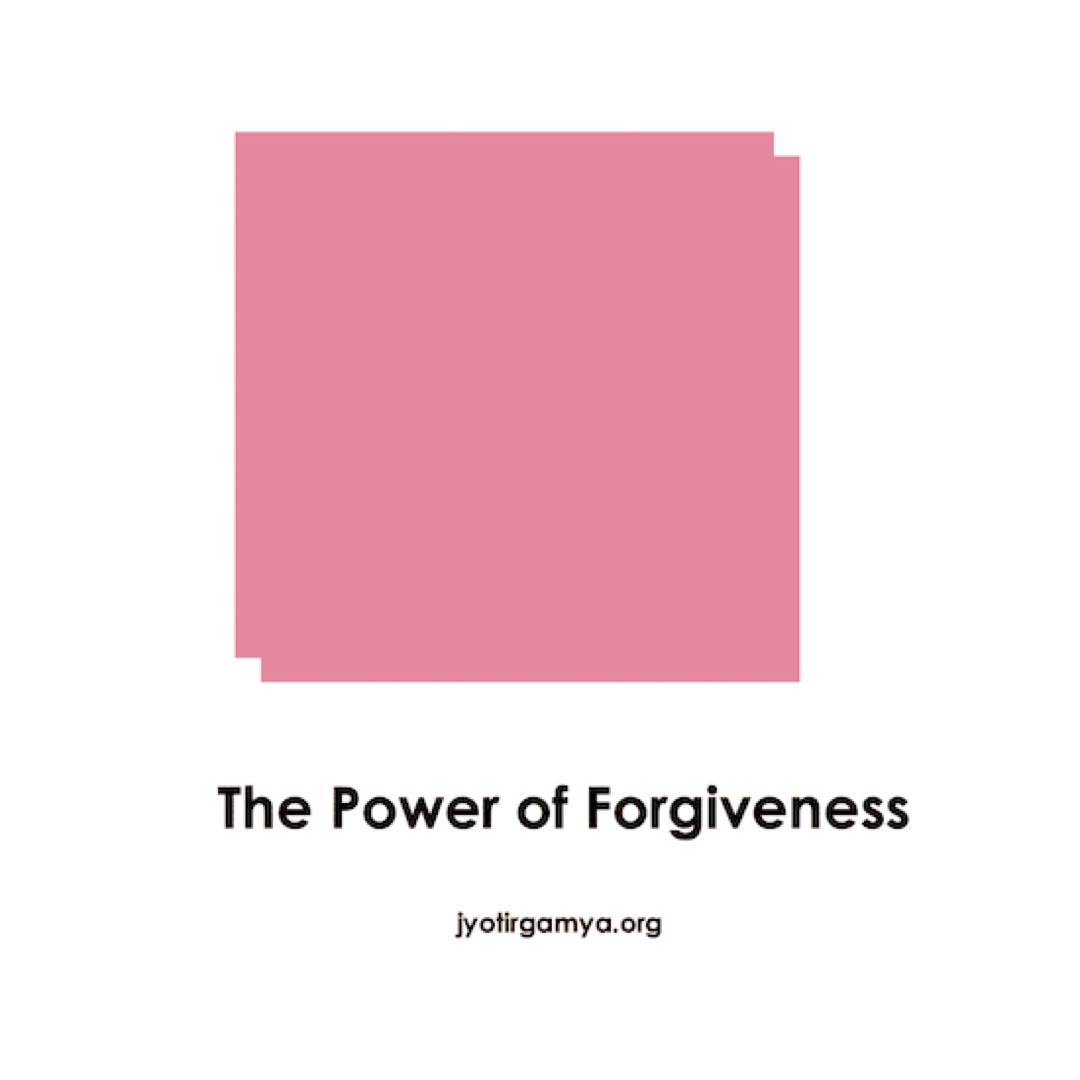The Forgiver's Dilemma: Can Letting Go Set You Free?
Imagine two people in a relationship, like friends or partners. One person (let’s call her Samantha) does something wrong to the other (David), like backstabbing, espionage, stalking, sabotage, or breaking a promise.
The Dilemma: David has two choices
Forgive (Cooperate): David forgives Samantha, giving her another chance, and tries to rebuild trust.
Hold a Grudge (Defect): David chooses to stay mad and not forgive, maybe by pulling away emotionally or bringing up what Samantha did.
The Payoffs
Forgive (Cooperate): David risks getting hurt again, but the relationship might be strengthened IF Samantha changes.
Hold a Grudge (Defect): David feels justified but might damage the relationship and stop Samantha from learning from her mistake.
The Dilemma
Forgiving can be risky: David might get hurt again if Samantha doesn’t change.
Holding a grudge can be dire: It stops the relationship from healing and worsens things.
That’s why many people face the “Forgiver’s Dilemma”: Should I forgive them for my well-being or prioritize protecting myself from further hurt?

We’ll explore both sides of this dilemma to help you decide what’s right for you.
Introduction
Forgiveness means letting go of anger and resentment towards someone who wronged you. It doesn’t mean forgetting what happened or saying it was okay.
Research shows that forgiveness can have significant benefits for your mental health. Studies link forgiveness to lower stress, anxiety, and depression.
But here’s the thing: forgiveness can be tricky, as we analyzed earlier, especially in scenarios like a betrayal of trust.

Understanding the Conflict and Its Impact
Life is also about disagreements and misunderstandings. Sometimes, these situations leave us feeling hurt and angry. This can lead to a difficult question: Do we forgive the other person or hold onto those negative feelings?

The Psychological Toll of Resentment
Forgiving is about making a conscious choice to let go of anger and resentment. A study published in the Journal of Personality and Social Psychology found that people who harbored unforgiveness were more likely to experience anxiety, depression, and even physical health problems.
The Path to Forgiveness
Forgiveness is a personal journey, but there are steps you can take to begin the process. Here’s an actionable tip:
Journaling Exercise: Grab a pen and paper. Write down a list of the emotions you’re experiencing related to the situation. Be honest with yourself. Are you feeling angry? Sad? Betrayed? Next, identify specific thoughts or memories that trigger these emotions.
By understanding your emotions and their triggers, you can address them healthily. This is the first step towards letting go and moving forward.
Communication Script: Here’s a simple script you can use to start a conversation with someone who hurt you:
“I wanted to talk about what happened between us. When [describe the situation], I felt [explain your emotions]. To rebuild trust, I need [explain what you need from them, e.g., an apology, a behavior change]."
Remember, to eliminate any misunderstanding, it is wise to offer a chance to build trust. While it takes time and effort, in the long run, it can be rewarding. Be patient with yourself and the other person.
Making Forgiveness a Decision
Forgiving someone can be a powerful act. It can free you from anger and resentment and even strengthen your relationships. But what if forgiving someone feels icky? They may still need to apologize or change their behavior. That’s okay. Forgiveness is a personal choice, and it shouldn’t come at the expense of your mental health.
When Forgiveness Isn’t the Answer
Let’s say your friend keeps borrowing money and never pays you back. You might forgive them once twice, but what about the third time? Forgiving someone who continues to hurt you can lead to more stress and anxiety.
Prioritizing Your Feelings
So, how do you decide when to forgive? Here’s the key: Forgiveness is about your well-being, not the other person’s. If forgiving someone makes you feel worse, take a step back.
Actionable Step: Pros & Cons List
Feeling stuck? Here’s a trick: Grab a pen and paper. Make a list that weighs the pros and cons of forgiving this person. Does forgiving them bring you peace, or does it just make you feel used? This list can help you see the situation clearly and prioritize your emotional health.
Remember, you may choose to forgive someone later, or maybe not. The most important thing is to do what feels right for you.
Self-compassion and Letting Go (Without Forgiving)
Forgiveness is often seen as the ultimate path to healing, but there are better fits than this, which can be confusing. Here’s the good news: you can find peace and move on without forgiving someone.
Understanding Forgiveness
Forgiveness doesn’t mean pretending what happened didn’t matter. Research shows it’s more about letting go of negativity and resentment for your well-being. It’s a personal choice, not an obligation.
Why We Forgive (or Don’t)
We might choose to forgive someone out of empathy and understanding their situation. Forgiveness can also bring closure, allowing us to move forward. But forgiving on your terms is essential when you’re truly ready.
Boundaries: Essential Even Without Forgiveness
Even if you decide not to forgive someone, setting boundaries is crucial. Boundaries are healthy limits that protect your well-being. This could mean limiting contact with someone who hurt you or simply saying “no” to future requests.
Actionable Step: Self-Compassion Meditation
Self-compassion is crucial to healing. Try a guided self-compassion meditation. These meditations help you cultivate kindness and understanding for yourself, which can be incredibly powerful.
Alternatives to Forgiveness: Finding Closure
Life throws curveballs, and sometimes people hurt us. We hear much about forgiveness, but what if it doesn’t feel right? The good news is there are other paths to healing. Here are some ways to find closure and move on, even if you don’t feel ready to forgive.
Not Every Hurt Needs Forgiveness
Forgiveness is a powerful tool, but it’s only for some. Maybe someone keeps hurting you, or maybe they haven’t said sorry. That’s okay. You don’t have to forgive someone to heal.
Healthy Alternatives to Forgiveness
There are other ways to find peace. One way is to set boundaries. Boundaries are like invisible lines that protect you. Maybe you limit contact with someone who hurt you or politely say “no” to future requests.
Another path to healing is focusing on yourself. This could be learning a new skill, spending time with loved ones, or caring for yourself.
Letting Go of “Sorry”
Sometimes, we wait for an apology to move on. But the truth is, an apology might never come. Letting go of the need for someone else’s sorry can be freeing. It allows you to focus on your healing journey.
Remember, You Come First
Forgiveness is a personal choice. There’s no right or wrong answer. The most important thing is your mental health. If you don’t feel ready to forgive, that’s perfectly okay. Focus on what helps you feel better and move forward.
Parting Thoughts
The article tackles the complex question of forgiveness. It presents a scenario where someone you trust betrays you, leaving you angry and hurt. You then face the “Forgiver’s Dilemma”: confront the pain and forgive, or hold onto resentment for self-protection.
While forgiveness offers mental health benefits like reduced stress and anxiety, it shouldn’t come at the cost of your well-being. The article emphasizes that forgiveness is a personal decision. If forgiving feels impossible right now, there are alternative paths to healing.
Focus on self-compassion and extending kindness and understanding towards yourself. Setting boundaries, like limiting contact with the person who hurt you, is also crucial. Remember, you can find peace and move on without forgiving someone. The most important takeaway is prioritizing your mental health and taking steps that empower you to move forward.
Related Articles
Your Guide to Avoiding Pop-Psych & Finding Effective Therapy
Protecting Your Mental Health from Trolls
Unlocking Emotional Flexibility: A Path to Resilience and Well-being
Deep Dive into Emotional Flexibility: Guide to a More Fulfilling Life
Social Anxiety Disorder Treatment
Want to stay connected? Here’s our twitter.
Or subscribe to our monthly newsletter containing tools for body, mind, and goal.